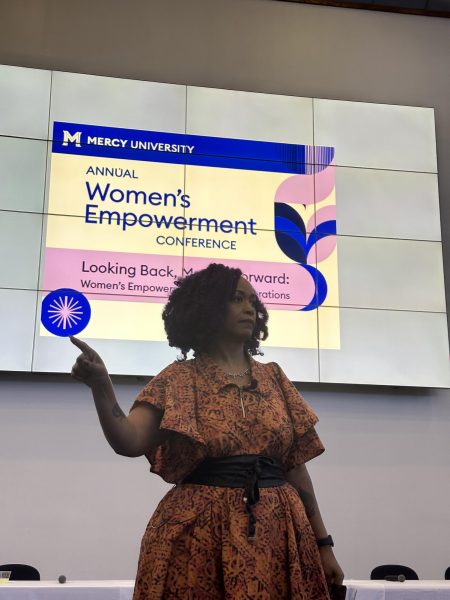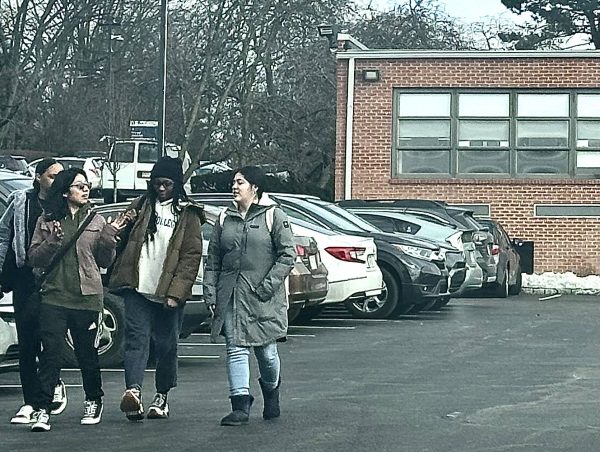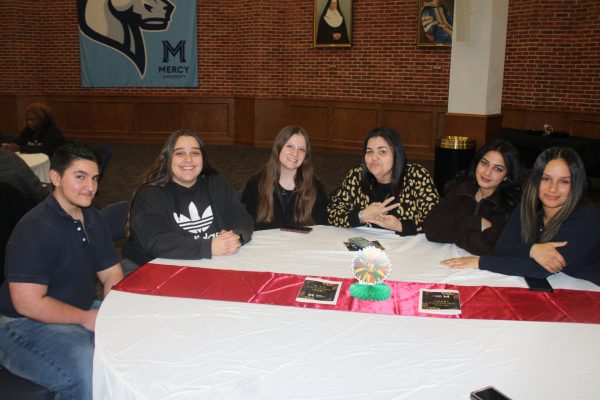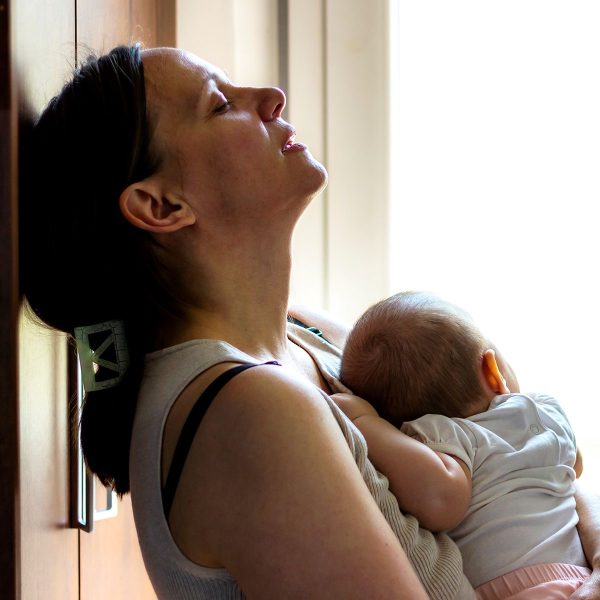Carpe Diem Or The Job Corps
It’s that time of year again – students are completing their senior dues, picking out their prom dresses and renting their tuxes. It is also the time of year where one receives a letter in the mail that holds in it his or her future. It is a letter that will tell someone whether or not he or she has been accepted to the college or university of his or her dreams.
When one is young, going to college is something that he or she may aspire to do. It is a responsibility and a privilege. Everyone has his or her own expectations of college.
Some go to college to take a page out of The Dead Poets Society and seize the day, while others attempt to earn a degree so that they can immediately find a job.
Historically, college was a place one went to philosophize and learn and to broaden one’s horizons. When one graduated knowing who he or she was, then they could pick the right career for themselves. However, over the years, the thought process of the role of college has changed to some.
Liberal arts programs focus more on personal growth, while other career oriented programs believe college should be more about job training.
College has made the transition from being a place to find yourself, to a place that prepares one for the “real world.” Some students come in as freshmen already knowing who they are and what they want to do with themselves without having explored that concept in depth. It has led many to wonder whether college just become an extremely costly part of formal job training.
***
William Lindau, a junior at Pine Bush High School and a member of the varsity track team, has high expectations about going to college. He, like many other students his age, have already begun the process of looking at schools and flipping through endless checklists in order to find the school that fits him best.
When asked what he was looking forward to most, Lindau commented, “I can not wait to have the freedom and responsibility for the first time in my life when I go away to school.”
For someone who is early on in the college search process, just having the opportunity to go away to school is fulfilling enough, and the concept of career has yet to play a major role in his decision making.
It seems that many students preparing to take the big leap into adulthood are excited about going away and having their own freedom and responsibility, however, very rarely are they asked what they expect to get out of the experience nor do some even consider it.
“Being able to run and get my education at the same time will be tricky, but it will teach me more than one would think,” said Lindau. He then added, “Being a college athlete I feel like I’ll be learning time management skills, responsibility and determinate. Those are skills that my classes will never teach me.”
Although Lindau comes from a household where one parent never went to school and the other one pursued high education but never completed it, he like many other youth across the country are going to college because they feel it is something that they have to do in order to be able to obtain a job that will allow them to support their families in the future.
Determination and time management seems to reign supreme amongst the skills student athletes expect to learn, however, there are still many other students who still believe in the idea of finding themselves.
Libby Zelikowitz, a sophomore in the Business Honors Program and a student athlete as well, is going through a different college experience unlike other typical college students. Playing for a successful women’s soccer team, being apart of a strict honors program, as well as being actively involved on campus, has helped Libby in ways that she never thought they would.
“College is about finding who you are,” said Zelikowitz.
Although initially Zelikowitz thought that staying at school for four years and following “the usual plan” would help her find her self, as well as her career choice, she quickly realized that she like many other students who decided to study abroad needed something with a little more substance.
Studying abroad in Israel for the Spring 2015 semester, Zelikowitz is aiming to achieve the fulfillment that she was hoping to while staying at school in the United States.
“I will still be studying business in Israel and I will still have to maintain a good GPA, but going to Israel will allow me to travel and to experience a whole different world.”
People like Zelikowitz want to explore every option possible, and although a study abroad option may not be feasible for everyone, it still remains popular amongst students who are looking for a greater understanding of who they are as they pursue higher education.
***
While the “traditional” college student is unfamiliar with the work force, “returning” students are often experiencing a change of career. According to the Institute of Education Sciences, the average returning students age is around 25-36 and often return to college due to being unhappy in their current career, losing employment or realizing a trend that jobs in an industry are being phased out.
According to the National Center for Education Statistics, there was a 42 percent increase of people who are 25 and older who went back to school to get a college education.
Iris Aviles, 54, is a single mother of three children. Aviles was born in Puerto Rico where she did her undergraduate study in psychology. Unfortunately due to financial troubles, Aviles was unable to complete her studies.
“I grew up very poor, so college was a privilege. I wanted to meet other people, people who were different from me. I wanted to be productive so that I could eventually have a career,” said Aviles when The Impact asked her why she went to college.
Half way through her junior year, she had to put a hold on her studies to help support her family. When asked if she would go back to college to complete her studies if the opportunity presented itself, Aviles said, “Of course. I have experience, I have gained tolerance, and I enriched myself. I learned a lot about people and their behavior and myself as a person.”
Aviles is not the only single parent who would return to college as there are many single moms returning to complete their degrees. The Department of Education recently reported that 13 percent of students now enrolled in college were single parents; this number went up from 7.6 percent in 1993. In addition to this many parents both single and married are returning to college because of their desire to seek financial independence. Being able to provide for ones family seems to be universal. According to the National Center for Education Statistics, those who have earned their bachelor’s degrees are earning 35 percent more than those who did not complete their education and receive a bachelor’s degree.
***
Aviles, unlike most “traditional” students, quickly found the equilibrium in finding onesself and job training.
“I didn’t go to school so that I could make money,” said Aviles, “although money is very nice. It was different for me. I wanted a foundation and I believe I got that. I love the field that I am in and going to college and being a psychology major even though I didn’t finish helped me understand others and myself.”
Returning to college isn’t just a means of seeking higher education for higher compensation. Often times upon completing an undergraduate degree students realize that the degree that they pursued is not one they were particularly passionate about. In addition to this graduated students realize that the hiring pool for their desired profession is extremely diluted.
Nicholas, 37, completed his undergraduate degree in education at Miami.
“I went to college because I saw it as an avenue to have a more fulfilling life. I didn’t want to be stuck in a dead end job that would make me miserable for the rest of my life,” said Nicholas when asked why he went to school.
Much to his surprise, Nicholas realized upon graduation that not only was his field incredibly broad, he was unsure what he wanted to do. Because of this, Nicholas decided to go back to school to pursue his masters. He then completed two masters, one in economics and the other in public policy.
Nicholas smirkingly states that he got more out of college than just an education
There is not one college plan for everyone. Many can agree that going away to college or pursuing a higher form of education is a right of passage for young people to be independent and be an adult for the first time. It also develops some level of job preparation skills because one learned certain skills you didn’t learn in high school that help one obtain more desirable jobs. However, this depends on the person. Some people go to learn how to think and some people look more for preparation for the work force. Whatever the reason may be, it remains clear that whether one is going to college for job preparation or to find your bliss, pursing higher education is something that has remained relevant regardless of age or intention.

Tiffany is a Marketing Major and a Journalism minor at Mercy. She has been a ballet student for many years. She loves any sport you can bet on. She hates...

Elizabeth Berlin is a Business Honors student and ambassador at Mercy College School of Business. She is an undergraduate majoring in Marketing and Finance....











